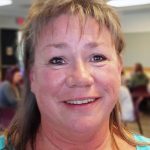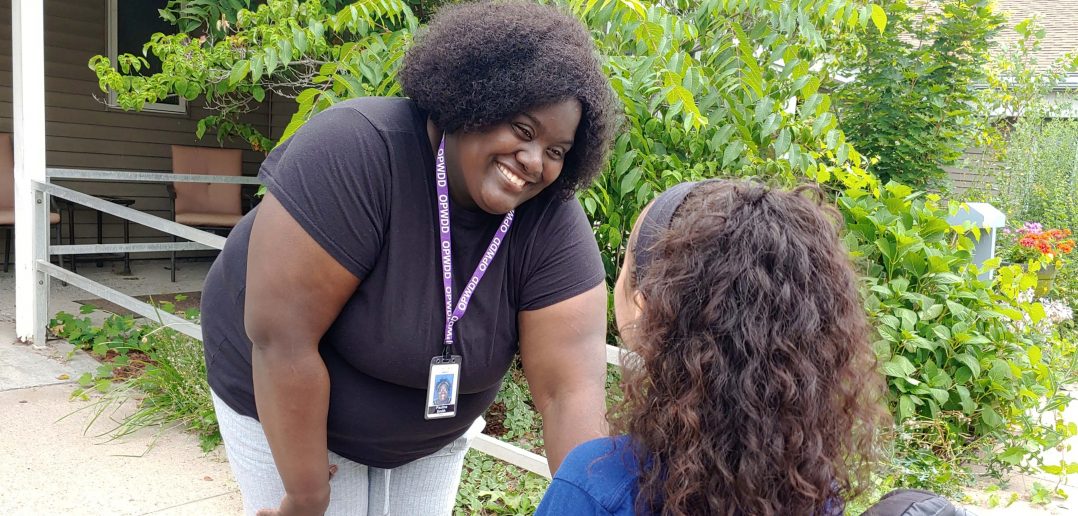ALBANY — Imagine your job is to care for people living with disabilities — people who can’t care for themselves; people who might not understand you want to help them; people with very specialized needs requiring a lot of individual attention and people who might get combative or even abusive when you try to help them.
Now, imagine that your workplace is constantly understaffed. You don’t have enough time to provide the loving care you want, not to mention keep up with the required paperwork. You and your co-workers are constantly mandated to work overtime, overtime that stresses and wears you out, takes you away from your own family, and makes it difficult to maintain focus on your critical responsibilities.
Combine all this with that ever-present anvil hanging over your head which keeps you up at night, knowing any moment as a direct care worker, you could be falsely accused with allegations of mistreatment or worse with little or no evidence, put out of work and investigated by the state’s Justice Center, with potentially career-destroying results.
In short, as a direct care worker, you can’t afford to make a mistake or even have a bad day.
Finally, think about almost never getting any praise, let alone the recognition you rightfully deserve for overcoming all of these obstacles and doing a good job providing daily living skills and tender care for the individuals under your watch.
Add that all together and it’s no wonder that it takes an extremely special kind of person to work for the state Office of People With Developmental Disabilities (OPWDD) as a direct care worker. It’s also no wonder that it’s harder than ever to recruit and retain these special people.
Yet CSEA is not giving up on making things better for our direct care workers, and our union is actively working with OPWDD to do even more.
Recently, CSEA participated in a statewide series of events designed to recognize agency workers who regularly go above and beyond the scope of their jobs as part of national Direct Support Professionals (DSP) Recognition Week. Union leaders and staff were on hand to support those workers and help amplify their stories, highlighting the great work that they do on a regular basis, and why they do it. We will tell some of those stories in this and upcoming editions of The Work Force.
CSEA President Danny Donohue also sent out a special message to our union-represented OPWDD workers during DSP Week, thanking them for their dedication and service.
“You truly are the HEART of New York — working tirelessly each day to provide skilled and compassionate care, often under very challenging circumstances; ensuring improvements in the quality of life for the individuals you support, making a difference for them and their families,” Donohue said. “Not just this week, but EVERY week, you do this selflessly, often facing persistent understaffing and onerous overtime rules. Thank you for all you do; the values you display and the professionalism you embody. We will never stop fighting for you to make sure you receive the respect and appreciation you deserve, every day.”
Our union continues to work through labor-management channels to try and improve recruitment and retention. We’ve participated in hiring events throughout the state to try and encourage new workers to apply, highlighting the protections, higher wages and great benefit package that go along with union membership.
We’ve also fought to create care pilots throughout the state of New York, including community habilitation, in-home waiver respite, pathway to employment and supported employment. We also fought for millions of dollars in state investments to run these important care pilots. (see sidebar below)
Some of our union’s most active members work in OPWDD. When we’ve been out talking with our members working in that field, we’ve listened to their stories and heard about their frustrations and struggles. Our union is fighting every day to make improvements, small and large, including negotiating in the state contract double time for extreme, mandated overtime shifts.
We salute all our direct care workers for the incredible work they continue to do.
— Mark M. Kotzin
What are Care Pilots?
In 2015, the state Office for People with Developmental Disabilities (OPWDD) and CSEA entered into a Memorandum of Understanding (MOU) to work together to create several types of pilot programs at a number of OPWDD locations across the state.
The object of the Care Pilots was to see whether state-operated home and community-based waiver services could be successfully provided in non-certified, community-based settings.
Before the Care Pilots were established, only nonprofits had provided the services that are now also being provided by state employees, as part of the Care Pilot programs, including:
Community Habilitation: This program provides support to individuals in the community or in their own home, including skill development to address multiple habilitation needs. Details of the program are planned based on the individual’s needs, but the program is intended to support independent living.
In-Home Waiver Respite: This program supports individuals living at home and offers relief for the family from primary care responsibilities.
Pathway to Employment: This service helps individuals develop the skills they need for successful employment.
Supported Employment: This program helps individuals obtain or maintain employment in the community.
Watch upcoming editions for more about the success of these programs.
Voices of our direct support professionals
The state Office for People With Developmental Disabilities (OPWDD) recently honored a group of direct support professionals across the state for their outstanding service and dedication to the individuals they serve.
Below are voices from a few of these workers. Future editions will include profiles of these and other workers who go above and beyond every day to provide high-quality care to individuals.
 “I get an incredible amount of professional fulfillment from what I do. There are things that you and I do every day that individuals struggle with.
“I get an incredible amount of professional fulfillment from what I do. There are things that you and I do every day that individuals struggle with.
For example, I was working with an individual who wouldn’t pour water into a glass. I turned it into a game and said to her, ‘I bet you can’t pour that water into a glass.’ She said, ‘I bet you I can,’ and she did it. The individual would also congratulate me and give me a high-five when I poured the water. Being a part of the individuals accomplishing these types of goals is why I get up and go to work every morning.”
— Stephanie Daniel, developmental assistant 2, Long Island Developmental Center
 In her 30 years working for Taconic DDSO, Sonia Ashe has worked in a variety of settings, from group homes to a job training program to the first independent living apartments for which OPWDD held a pilot program.
In her 30 years working for Taconic DDSO, Sonia Ashe has worked in a variety of settings, from group homes to a job training program to the first independent living apartments for which OPWDD held a pilot program.
Even if she is going to be off on a particular day, she makes arrangements to ensure her individuals attend their community programs and proceed with any other plans that have been made.
Like many of her co-workers, she enjoys planning outings in the community that her individuals will enjoy. Ashe has been with OPWDD long enough to see how the individuals benefit from going further and further into community settings.
“I really would like the individuals I serve to have the most enriched lives they can have. I love to help them have the same things that the rest of us are able to do without constraints. Everyone is a human being. Everyone deserves to be treated with dignity and respect.”
— Sonia Ashe, direct support assistant, Taconic DDSO
 “After a 20-year career in the United States Air Force, I was looking for another job that could make me happy and know I was still contributing something to our community.
“After a 20-year career in the United States Air Force, I was looking for another job that could make me happy and know I was still contributing something to our community.
It was just plain luck I fell into getting a job as a direct support assistant near my home in Ovid. Everything immediately fell into place. Even on bad days, I still leave my group home feeling a sense of accomplishment knowing I have helped a fellow human being live a better quality of life.
Working with people with developmental disabilities is an incredibly rewarding job. If you want to make a difference in the lives of others, this is the job to have.”
— Deborah Wilkins, direct support assistant, Finger Lakes DDSO
 “I want to help [our individuals]have better lives. I care for everyone as if they were my family.”
“I want to help [our individuals]have better lives. I care for everyone as if they were my family.”
— Linette Boon, direct support assistant, Capital District DDSO
 “Anything that’s good, I want to be a part of. There’s a quote that says, ‘If I can help someone as I travel along life’s way than my living shall not be in vain.’ I truly believe that you have to help someone in order for your life to have meaning.”
“Anything that’s good, I want to be a part of. There’s a quote that says, ‘If I can help someone as I travel along life’s way than my living shall not be in vain.’ I truly believe that you have to help someone in order for your life to have meaning.”
— Ella Nelson-Bernard, Direct Support Assistant, Bernard Fineson DDSO


